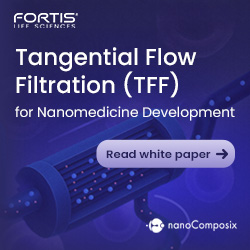Crinetics Pharmaceuticals’ Oral ACTH Antagonist Demonstrates Pharmacologic Proof-of-Concept With Dose-Dependent Cortisol Suppression in Single Ascending Dose Portion of Phase 1 Study
Crinetics Pharmaceuticals, Inc. recently announced positive preliminary findings from the single ascending dose (SAD) portion of a first-in-human Phase 1 clinical study with CRN04894 demonstrating pharmacologic proof-of-concept for this first-in-class, investigational, oral, nonpeptide adrenocorticotropic hormone (ACTH) antagonist that is being developed for the treatment of conditions of ACTH excess, including Cushing’s disease and congenital adrenal hyperplasia.
“ACTH is the central hormone of the endocrine stress response. Even though we’ve known about its clinical significance for more than 100 years, there has never been an ACTH antagonist available to intervene in diseases of excess stress hormones. This is an important milestone for the field of endocrinology and for our company,” said Scott Struthers, PhD, founder and Chief Executive Officer of Crinetics. “I am extremely proud of our team that conceived, discovered, and developed CRN04894 this far. This is the second molecule to emerge from our in-house discovery efforts and demonstrate pharmacologic proof of concept. I am very excited to see what it can do in upcoming clinical studies.”
The 39 healthy volunteers who enrolled in the SAD cohorts were administered oral doses of CRN04894 (10 mg to 80 mg, or placebo) two hours prior to a challenge with synthetic ACTH. Analyses of basal cortisol levels (before ACTH challenge) showed that CRN04894 produced a rapid and dose-dependent reduction of cortisol by 25%-56%. After challenge with a supra-pathophysiologic dose of ACTH (250 mcg), CRN04894 suppressed cortisol (as measured by AUC) up to 41%. After challenge with a disease-relevant dose of ACTH (1 mcg), CRN04894 showed a clinically meaningful reduction in cortisol AUC of 48%. These reductions in cortisol suggest that CRN04894 is bound with high affinity to its target receptor on the adrenal gland and blocking the activity of ACTH. CRN04894 was well tolerated in the healthy volunteers who enrolled in these SAD cohorts and all adverse events were considered mild.
“We are very encouraged by these single ascending dose data which clearly demonstrate proof of ACTH antagonism with CRN04894 exposure in healthy volunteers,” said Alan Krasner, MD, Chief Medical Officer of Crinetics. “We look forward to completing this study and assessing results from the multiple ascending dose cohorts. As a clinical endocrinologist, I recognize the pioneering nature of this work and eagerly look forward to further understanding the potential of CRN04894 for the treatment of diseases of ACTH excess.”
Crinetics is enrolling healthy volunteers in this double-blind, randomized, placebo-controlled Phase 1 study of CRN04894. Participants will be divided into multiple cohorts in the single ascending dose (SAD) and multiple ascending dose (MAD) phases of the study. In the SAD phase, safety and pharmacokinetics are assessed. In addition, pharmacodynamic responses are evaluated before and after challenges with injected synthetic ACTH to assess pharmacologic effects resulting from exposure to CRN04894. In the MAD phase, participants will be administered placebo or ascending doses of study drug daily for 10 days. Assessments of safety, pharmacokinetics and pharmacodynamics will also be performed after repeat dosing.
Adrenocorticotropic hormone (ACTH) is synthesized and secreted by the pituitary gland and binds to melanocortin type 2 receptor (MC2R), which is selectively expressed in the adrenal gland. This interaction of ACTH with MCR2 stimulates the adrenal production of cortisol, a stress hormone that is involved in the regulation of many systems. Cortisol is involved for example in the regulation of blood sugar levels, metabolism, inflammation, blood pressure, and memory formulation, and excess adrenal androgen production can result in hirsutism, menstrual dysfunction, infertility in men and women, acne, cardiometabolic comorbidities and insulin resistance. Diseases associated with excess of ACTH, therefore, can have significant impact on physical and mental health. Crinetics’ ACTH antagonist, CRN04894, has exhibited strong binding affinity for MC2R in preclinical models and demonstrated suppression of adrenally derived glucocorticoids and androgens that are under the control of ACTH, while maintaining mineralocorticoid production.
Cushing’s disease is a rare disease with a prevalence of approximately 10,000 patients in the United States. It is more common in women, between 30 and 50 years of age. Cushing’s disease often takes many years to diagnose and may well be under-diagnosed in the general population as many of its symptoms such as lethargy, depression, obesity, hypertension, hirsutism, and menstrual irregularity can be incorrectly attributed to other more common disorders.
Congenital adrenal hyperplasia (CAH) encompasses a set of disorders that are caused by genetic mutations that result in impaired cortisol synthesis with a prevalence of approximately 27,000 patients in the United States. This lack of cortisol leads to a loss of feedback mechanisms and results in persistently high levels of ACTH, which in turn causes overstimulation of the adrenal cortex. The resulting adrenal hyperplasia and over-secretion of other steroids (particularly androgens) and steroid precursors can lead to a variety of effects from improper gonadal development to life-threatening adrenal crisis.
Crinetics Pharmaceuticals is a clinical stage pharmaceutical company focused on the discovery, development, and commercialization of novel therapeutics for rare endocrine diseases and endocrine-related tumors. The company’s lead product candidate, paltusotine, is an investigational, oral, selective nonpeptide somatostatin receptor type 2 agonist for the treatment of acromegaly, an orphan disease affecting more than 26,000 people in the United States. A Phase 3 program to evaluate safety and efficacy of paltusotine for the treatment of acromegaly is underway. Crinetics also plans to advance paltusotine into a Phase 2 trial for the treatment of carcinoid syndrome associated with neuroendocrine tumors. The company is also developing CRN04777, an investigational, oral, nonpeptide somatostatin receptor type 5 (SST5) agonist for congenital hyperinsulinism, as well as CRN04894, an investigational, oral, nonpeptide ACTH antagonist for the treatment of Cushing’s disease, congenital adrenal hyperplasia, and other diseases of excess ACTH. All of the company’s drug candidates are new chemical entities resulting from in-house drug discovery efforts and are wholly owned by the company.
Total Page Views: 1127









